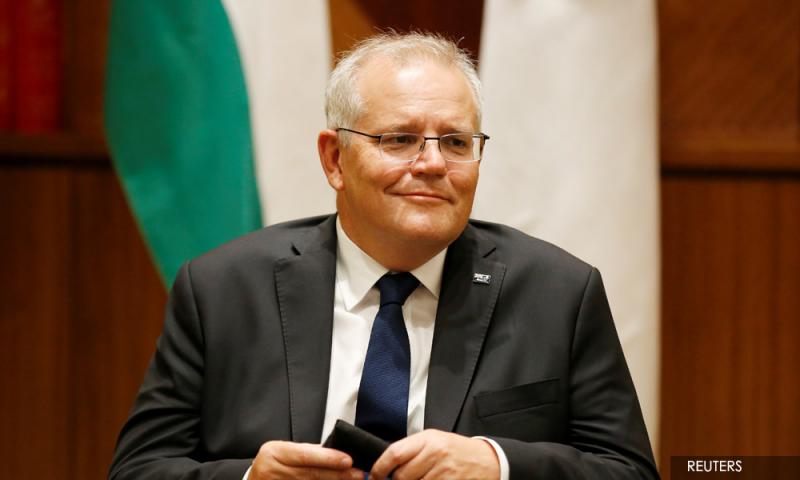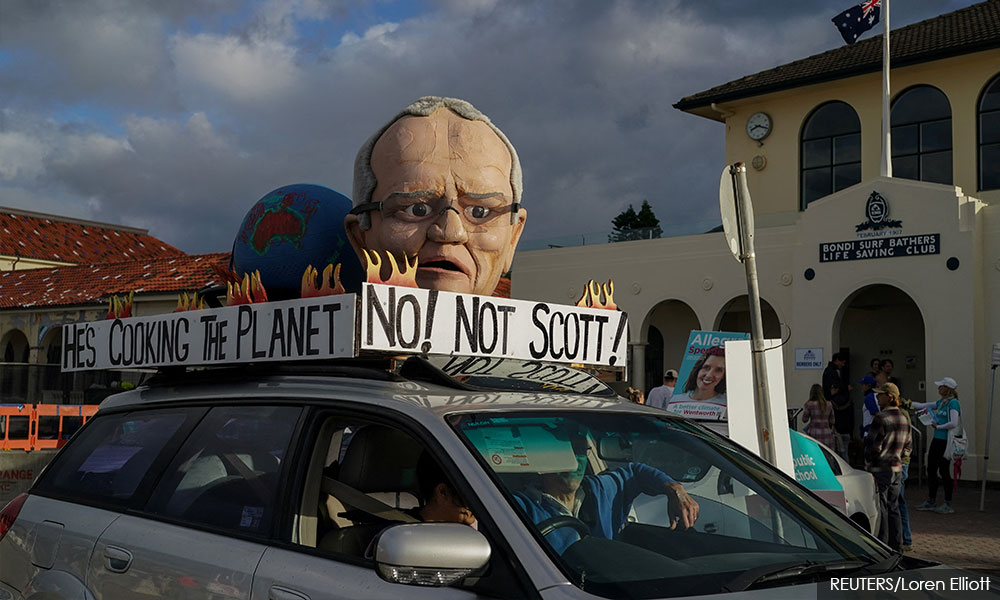
Aussie PM Morrison concedes, ending nearly a decade of conservative rule
Australian Prime Minister Scott Morrison conceded defeat after an election today and the opposition Labor Party was set to end almost a decade of conservative rule, possibly with the support of pro-environment independents.
Partial results showed Morrison's Liberal-National coalition had been punished by voters in Western Australia and affluent urban seats in particular.
"Tonight, I have spoken to the leader of the opposition and the incoming prime minister, Anthony Albanese. And I've congratulated him on his election victory this evening," Morrison (above) said, stepping down as leader of his party.
Labor had yet to reach 76 of the 151 lower house seats required to form a government alone. Final results could take time as counting a record number of postal votes is completed.
A strong showing by the Greens and a group of so-called "teal independents", who campaigned on policies of integrity, equality and tackling climate change, means the makeup of the new parliament looks set to be much less climate-sceptic than the one that supported Morrison's pro-coal mining administration.
Centre-left Labor had held a decent lead in opinion polls, although recent surveys showed the Liberal-National government narrowing the gap in the final stretch of a six-week campaign.
A Newspoll survey by The Australian newspaper out on election day showed Labor's lead over the ruling coalition dipping a point to 53-47 on a two-party-preferred basis, where votes for unsuccessful candidates are redistributed to the top two contenders.

Turning teal
In at least five affluent Liberal-held seats, so-called "teal independents" looked set to win, tapping voter anger over inaction on climate change after some of the worst floods and fires hit Australia.
Treasurer Josh Frydenberg said it would be "difficult" for him to hold the long-held Liberal seat of Kooyong in Melbourne to an independent newcomer in one of the biggest hits to the government.
Three volunteers working for teal independent Monique Ryan, who was challenging Frydenberg, said they joined Ryan's campaign because they were concerned about the climate for the sake of their children and grandchildren.
"For me, it's like this election actually feels hopeful," Charlotte Forwood, a working mother of three adult children, told Reuters.
Early returns suggested the Greens had also made ground, looking to pick up to three seats in Queensland.
Greens leader Adam Bandt, who retained his inner-city Melbourne seat, said climate was a major issue for voters.
"There was an attempt from Labor and Liberal to bury it, and we were very clear about the need to tackle climate by tackling coal and gas."
Morrison and Albanese earlier cast their votes in Sydney after making whistle-stop tours across marginal seats in the final two days of a campaign dominated by rising living costs, climate change and integrity.
As Labor focused on spiking inflation and sluggish wage growth, Morrison made the country's lowest unemployment in almost half a century the centrepiece of his campaign's final hours.
The New Australia under Labour is going to commit Sepukku by deinvesting its coal and gas industries.
ReplyDelete